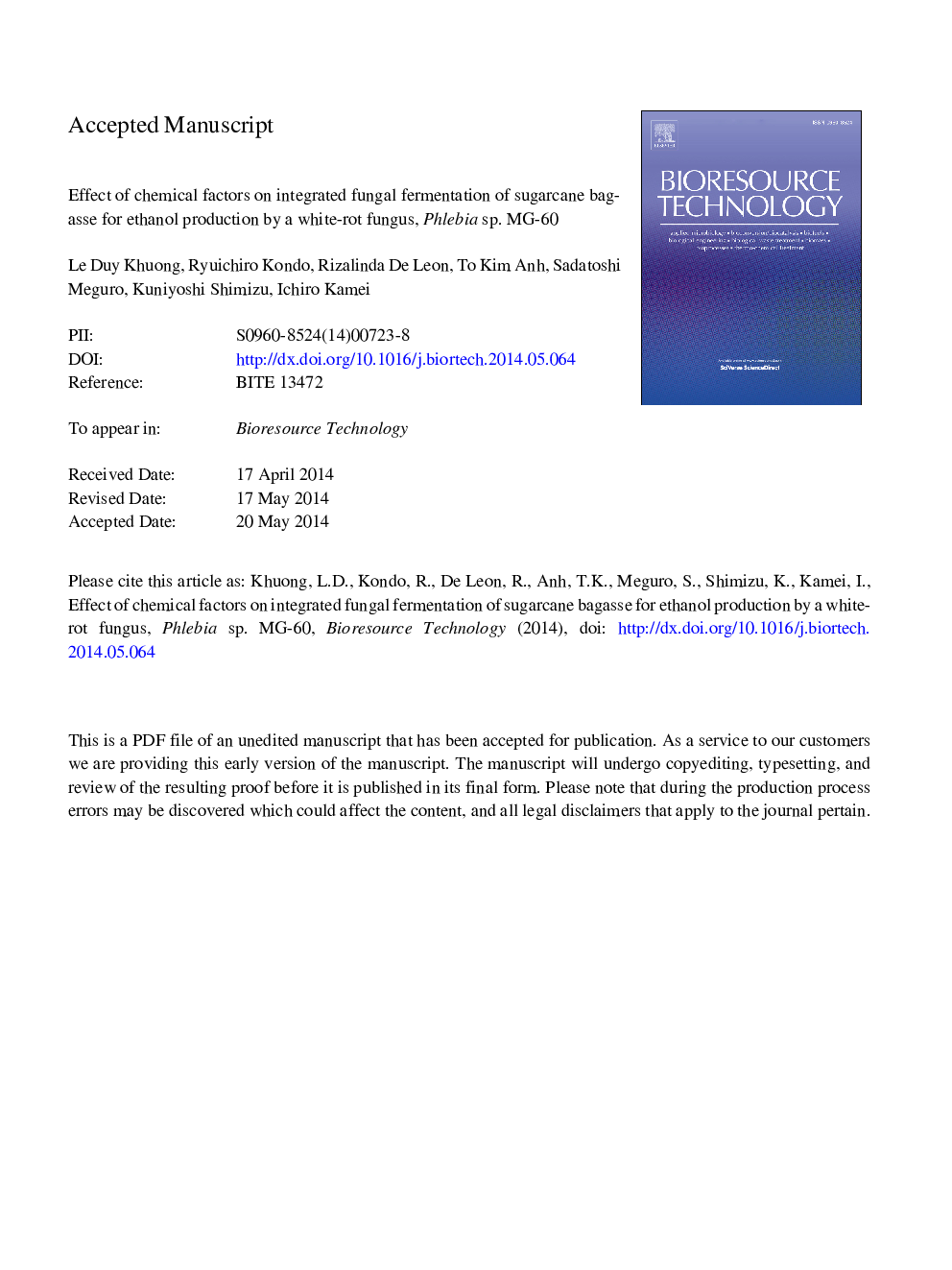| Article ID | Journal | Published Year | Pages | File Type |
|---|---|---|---|---|
| 7076684 | Bioresource Technology | 2014 | 29 Pages |
Abstract
Bioethanol production through integrated fungal fermentation (IFF), involving a unified process for biological delignification with consolidated biological processing by the white-rot fungus Phlebia sp. MG-60, was applied to sugarcane bagasse. Initial moisture content of the bagasse was found to affect biological delignification by MG-60, and 75% moisture content was suitable for selective lignin degradation and subsequent ethanol production. Additives, such as basal media, organic compounds, or minerals, also affected biological delignification of bagasse by MG-60. Basal medium addition improved both delignification and ethanol production. Some inorganic chemical factors, such as Fe2+, Mn2+, or Cu2+, reduced bagasse carbohydrate degradation by MG-60 during delignifying incubations and resulted in increased ethanol production. The present results indicated that suitable culture conditions could significantly improve IFF efficiency.
Keywords
Related Topics
Physical Sciences and Engineering
Chemical Engineering
Process Chemistry and Technology
Authors
Le Duy Khuong, Ryuichiro Kondo, Rizalinda De Leon, To Kim Anh, Sadatoshi Meguro, Kuniyoshi Shimizu, Ichiro Kamei,
